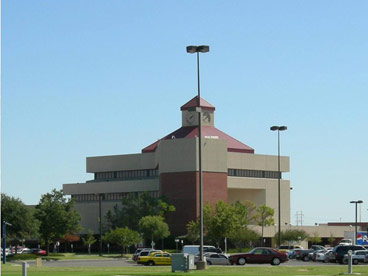Free speech zones unlikely at OCCC


One out of six of America’s top universities have free speech zones, according to the Foundation for Individual Rights in Education located at www.thefire.org. OCCC is not one of these campuses — yet.
The possibility that OCCC might consider a free speech zone on campus came about after an April 3 Pioneer interview with Police Chief James Fitzpatrick regarding two men from Trinity Holiness church in Norman speaking to students outside of the Main Building entrance 1 the day before.
During that interview, Fitzpatrick said, in part, “We currently do not have a free speech area …” With so many campuses that do, would OCCC ever consider limiting free speech to one portion of campus?
Fitzpatrick said he couldn’t answer that question as he doesn’t have the authority to create such an area.
Plus, he said, it seems to be a declining trend across the nation.
“I think things are starting to pan out across the country to where the courts are looking very strongly at some of the locations campuses have selected for free speech areas,” he said.
“It’s a tricky issue for institutions when they create them [and] where they create them because it’s going to have to withstand [the possibility] of a court challenge.”
Student Press Law Center attorney advocate Adam Goldstein weighed in on the matter of free speech zones on public college campuses.
He said it’s “transparently unconstitutional” to designate certain areas for public speaking.
“ … There is no precedent in American law that would authorize that kind of distinction,” Goldstein said.
According to the First Amendment of the U.S. Constitution, “Congress shall make no law…abridging the freedom of speech, or of the press; or the right of the people peaceably to assemble….”
Goldstein said something being unconstitutional doesn’t necessarily translate to it being illegal.
However, when the Constitutionality of a policy is challenged, it can lead to changes, as the state of Virginia recently found out.
Thomas Nelson Community College in Hampton, Va., is rewriting its policy after a student there filed a lawsuit when he was denied what he said was his right to speak freely on campus, according to townhall.com, a web-based magazine.
A bill was passed in the Virginia Legislature on April 7 forbidding Virginia public colleges from designating free speech zones.
Because of this, public university students are now free to express themselves without having to speak in certain areas with time limitations.
OCCC students have their own thoughts on the matter.
“I think you should have free speech anywhere on campus,” said Amanda Stevens, Early Childhood Education major. “It should not be designated to certain zones.”
Premed major Ted Walls agreed.
“I’m pretty much a proponent of the First Amendment,” Walls said.
“I think free speech should be exercised and given to everybody in any place, as long as you’re not provoking anger with hate speech or violence.”
For now, it seems OCCC is avoiding free speech zones. President Paul Sechrist said he knows of no plans to designate an area for free speech.
“I am unaware of any request for a free speech zone and I am unaware of any proposal to create one,” Sechrist said.
He said there would be a number of steps that would need to take place should that proposal ever come about.
“A proposal that includes the need, rationale, suggested location and rules would need to be developed and forwarded to the President’s Cabinet.”
For more information on individual rights on college campuses, visit the Student Press Law Center at www.splc.org.